Black glaze round pattern flower cloisonné tea bowl by Miyagawa Kosai
Black glaze round pattern flower cloisonné tea bowl by Miyagawa Kosai
Couldn't load pickup availability
Height: 8.0cm Width: 12.0cm
"Black Glazed Round Pattern Flower Shippo Tea Bowl by Miyagawa Kosai" is a matcha bowl with an especially beautiful and intricate design among tea ceremony utensils. The deep black color stands out due to the iron-rich glaze, and the delicate Shippo pattern and round pattern are applied to it. This piece is characterized by a well-balanced shape that can be said to be the ideal form for a matcha bowl and a symbolic design, making it a representative piece of traditional Japanese crafts.
The beauty and technique of black glaze
The black glaze used on this tea bowl contains a lot of iron, and so develops a deep black color during the firing process. The black glaze brings out the vivid green of the matcha tea, and brings visual beauty and serenity to the tea ceremony. The black glaze is also one of the most technically difficult glazes in pottery, and requires temperature control during firing and adjustment of oxidation and reduction. Many years of experience and skill are needed to master this glaze, which speaks to the high level of Miyagawa Kosai's technical ability. The circular crest and cloisonne pattern painted on the black glaze are painted in vivid colors that stand out against the black background, giving the entire tea bowl vitality and dignity.
The meaning and symbolism of Shippo pattern
Shippo pattern is a Buddhist term meaning "seven treasures" and originally a pattern reflecting Buddhist values, but in Japan it has been widely used as a design symbolizing human connections, prosperity of descendants, and a happy family. This pattern shows that the bonds and connections between people will continue forever by connecting circles of the same size in an infinite series. Therefore, Shippo pattern has been frequently used in tea utensils, costumes, architectural decorations, etc. as an auspicious pattern symbolizing "harmony," "fate," and "fate." In particular, Shippo pattern on this tea bowl expresses the spirit of valuing "fate" in the world of tea ceremony, and symbolizes the bond between people at the tea ceremony. Shippo pattern is also known as an auspicious crest symbolizing "infinite prosperity of descendants," and is treated as an auspicious pattern in weddings, housewarmings, and other occasions.
The beauty and tradition of round-patterned flower cloisonné
"Marumon Hana Shippo" is a design that depicts flowers in a circle, and is also known as "Hanamaru." Hanamaru is a classic pattern that has been used in traditional costumes such as Noh costumes and kosode, and is characterized by its elegant design with floral and plant motifs. This pattern ranges from realistic to abstract, and has always been loved, even though its form has changed with each era. Marumon Hana Shippo is well-balanced and arranged throughout the tea bowl, and more than being mere decoration, it contains elements that convey the spirituality and aesthetic sense of Japanese culture. This design symbolizes the beauty of nature and harmony in human relationships, making it the perfect pattern for tea bowls used in tea ceremonies.
Miyagawa Kosai and the tradition of Makuzu ware
Miyagawa Kosai is a family that inherits the techniques of the prestigious Kyoto ware "Makkuzu ware", and its history dates back to the Edo period. Miyagawa Yukan, the founder of the Miyagawa Kosai family, began pottery in Kyoto between 1684 and 1687, and the Miyagawa family has continued to develop Kyoto ware techniques for generations. In particular, works using "straw ash glaze" are one of the representative techniques of Makkuzu ware, and this glaze has been continuously produced by the Miyagawa family for over 200 years. This tea bowl also incorporates the traditional techniques of the Miyagawa family to the fullest, with intricate hand-painted painting and delicate adjustment of the glaze. Makkuzu ware techniques are characterized by transparent glazes and complex decorations, and works using colorful glazes called iroe in particular are highly acclaimed both domestically and internationally. Miyagawa family pottery has played a major role in the development of Japanese tea utensils and sencha tea utensils throughout its long history.
Modern appreciation of Makuzu ware
The Miyagawa Kosai family's works are held in museums and private collectors both in Japan and abroad, and their beauty and craftsmanship are still highly valued. In particular, the "Black Glazed Round Pattern Flower Shippo Tea Bowl" is a very popular piece in the world of tea ceremony due to its design and ease of use. This tea bowl is not only used in tea ceremonies, but also attracts the attention of many people as a work of art, and is one of the reasons why the craftsmanship and aesthetic sense of Makuzu ware are highly regarded worldwide.
The Miyagawa Kosai family is also highly regarded by pottery enthusiasts and art museums around the world, including in the United States, the United Kingdom, France, and China, and their works are housed in the Victoria and Albert Museum (London) and the Permanent Mission of Japan to UNESCO (Paris). Many of their works are not only practical as tea utensils, but also highly valued as art and craft items, and Makuzu ware is gaining presence as a representative of traditional Japanese crafts. This work is a masterpiece that combines the tradition and technology of Kyoto ware, and is a tea bowl that harmonizes the deep color of the black glaze with the beauty of the Shippo pattern and round crest. In the world of tea ceremony, this tea bowl has more value than just a vessel, and quietly adds elegance to the tea ceremony as a symbol of connections and ties between people. This tea bowl, which is the crystallization of the Miyagawa Kosai family's long history and technology, will continue to be loved by many tea masters and art lovers in the future.
Share
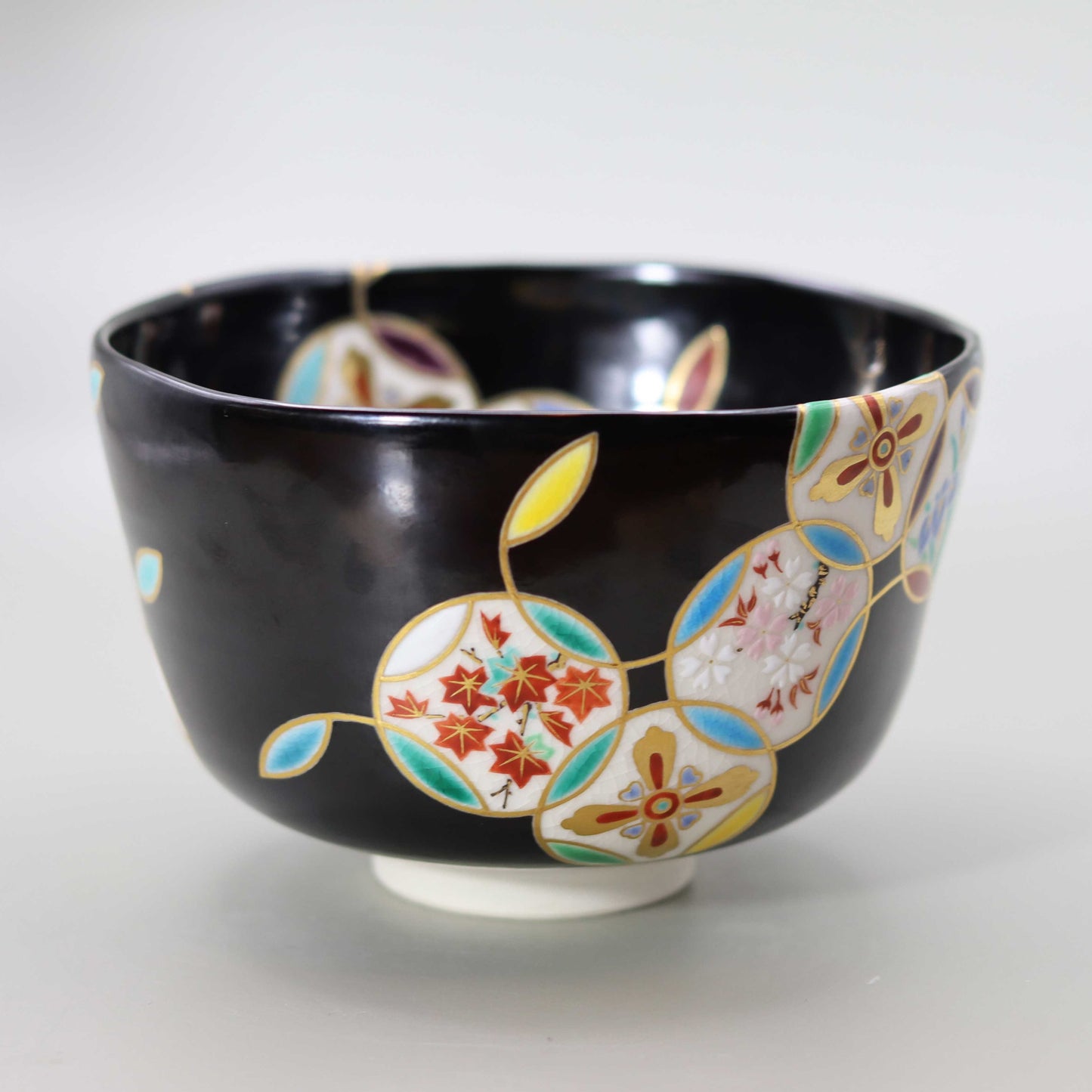
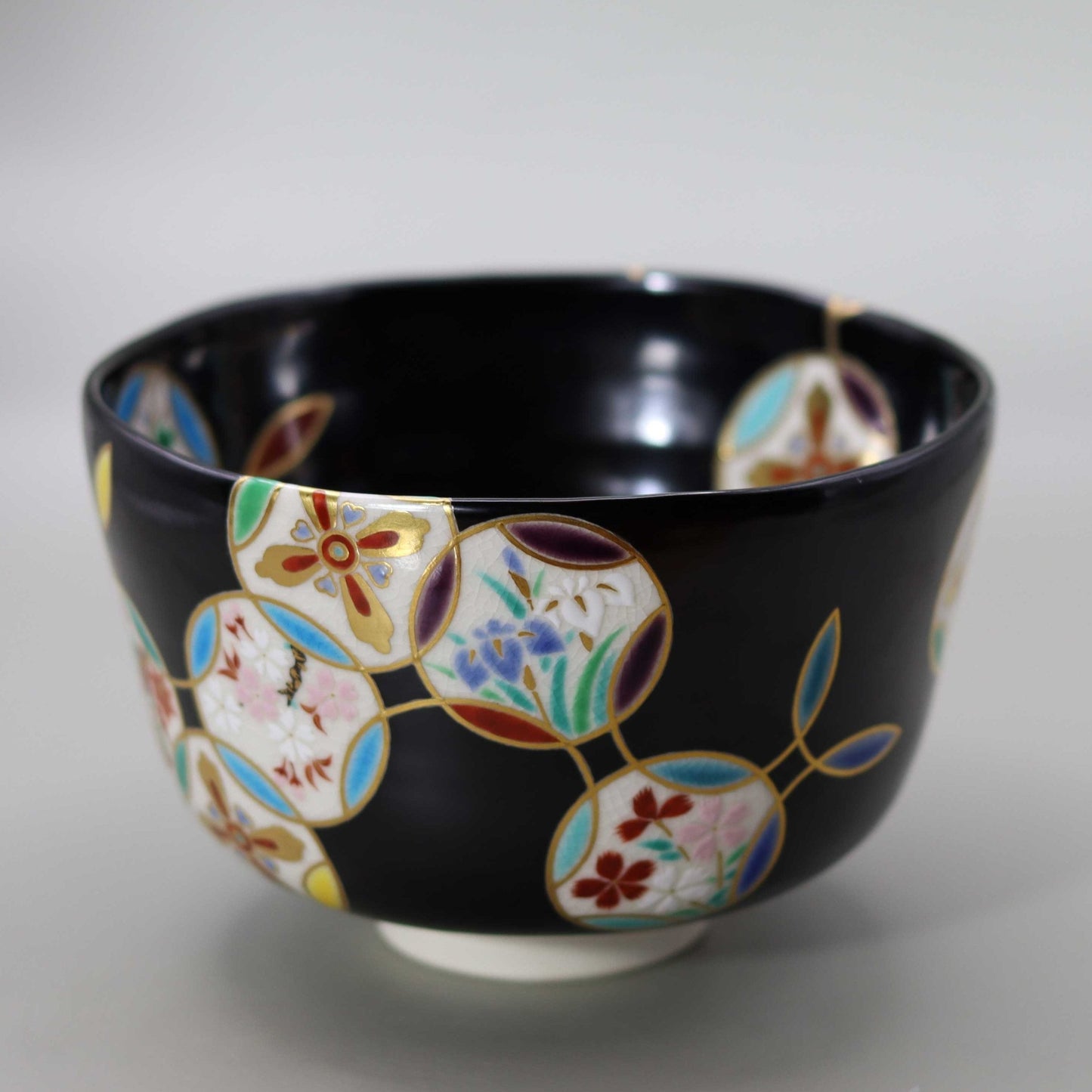
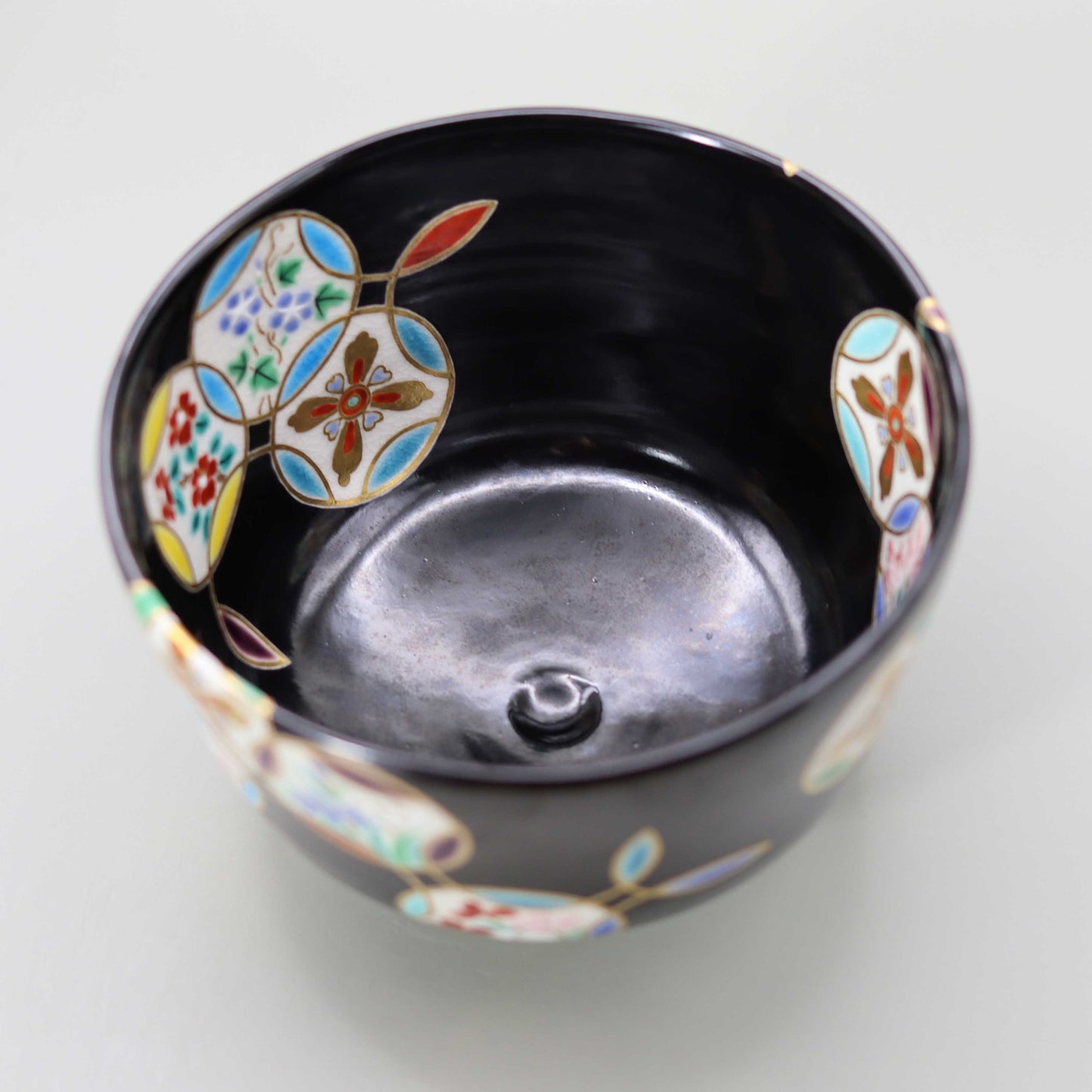
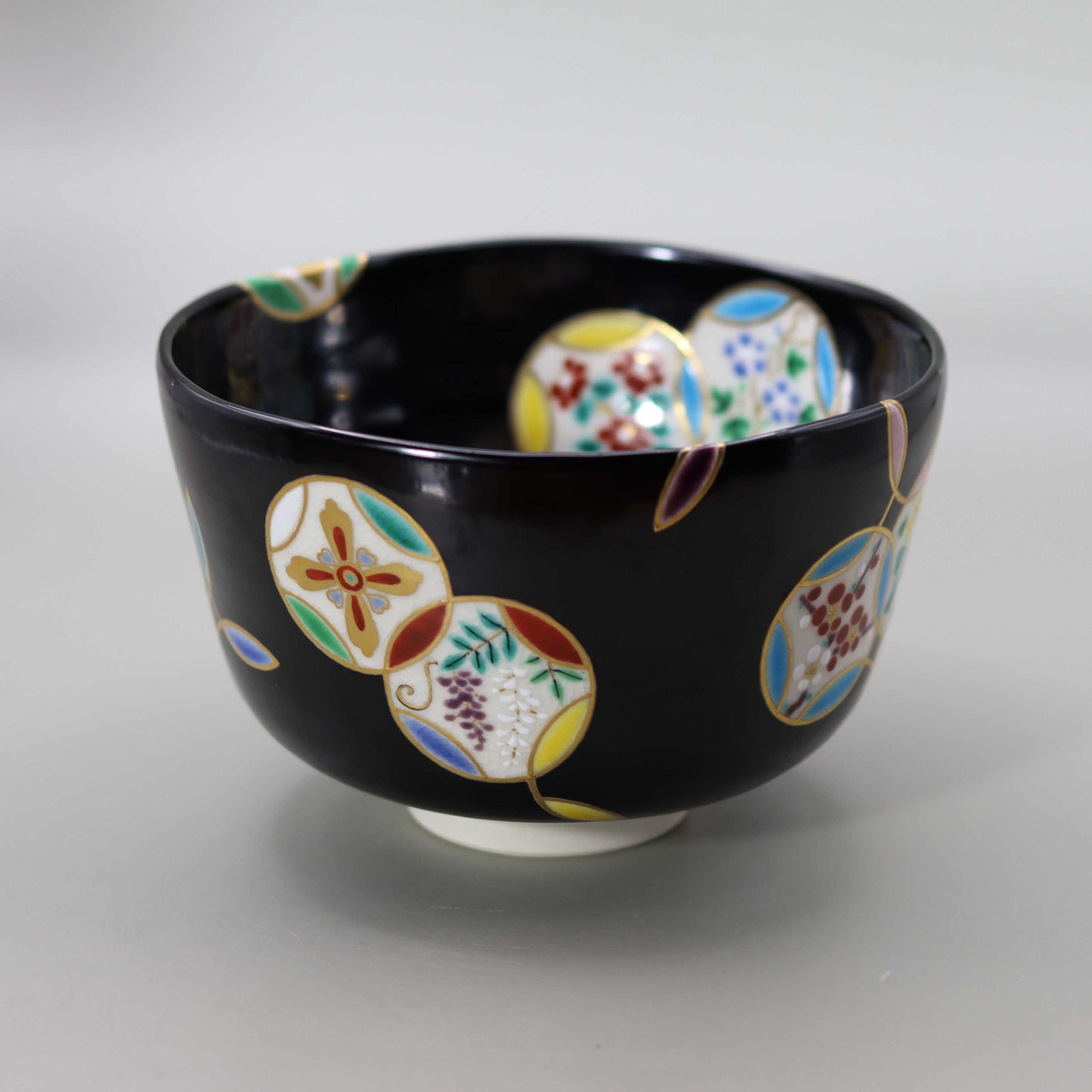
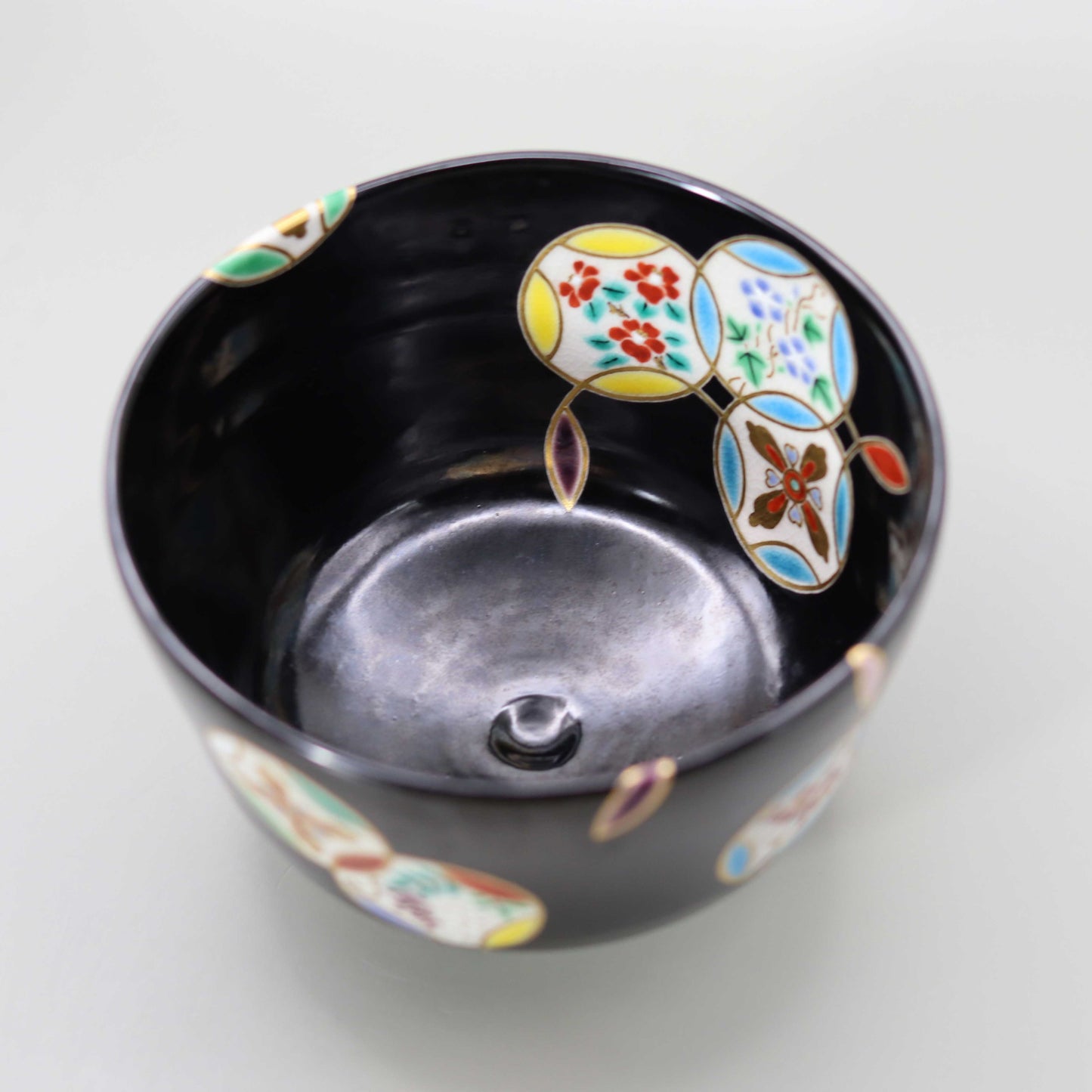
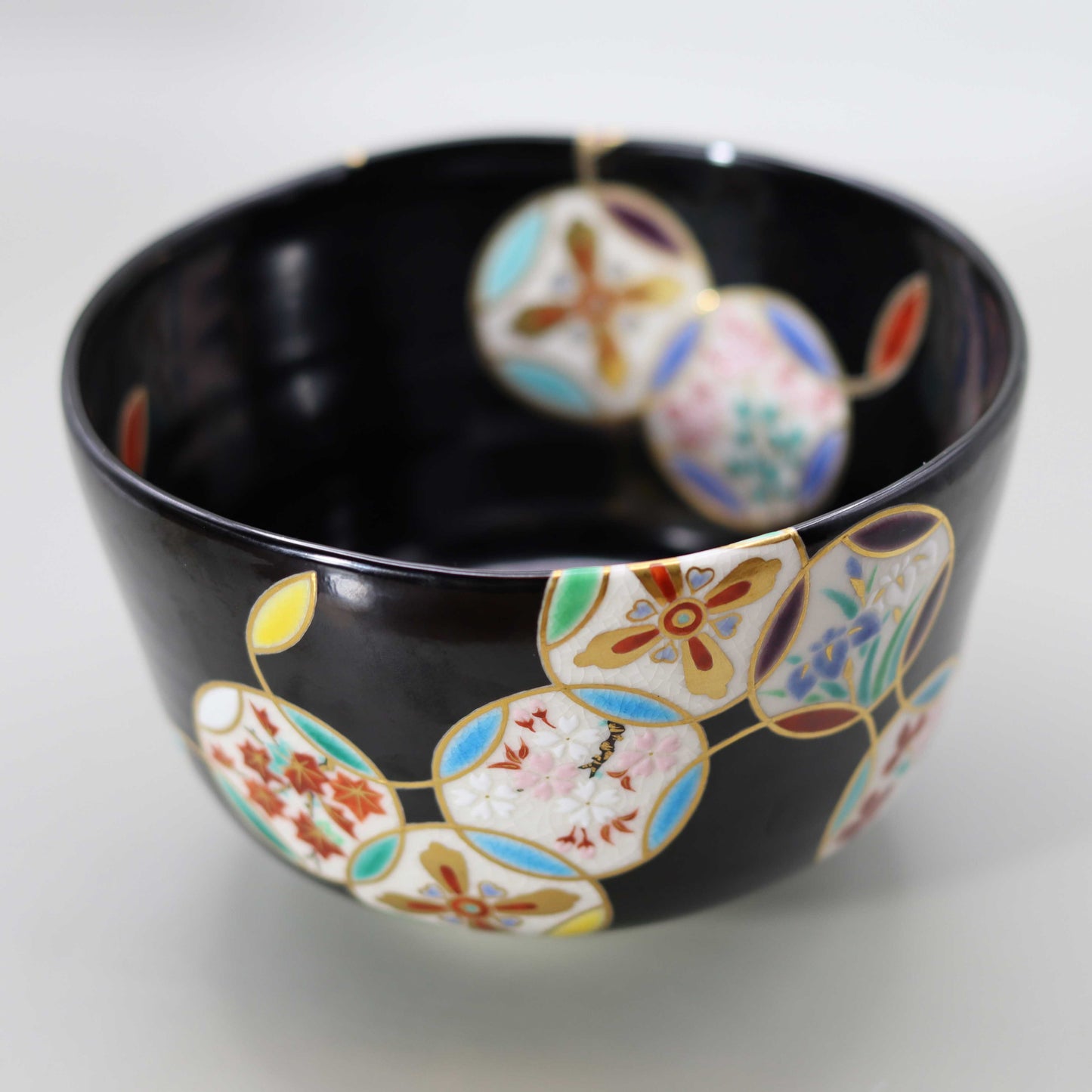
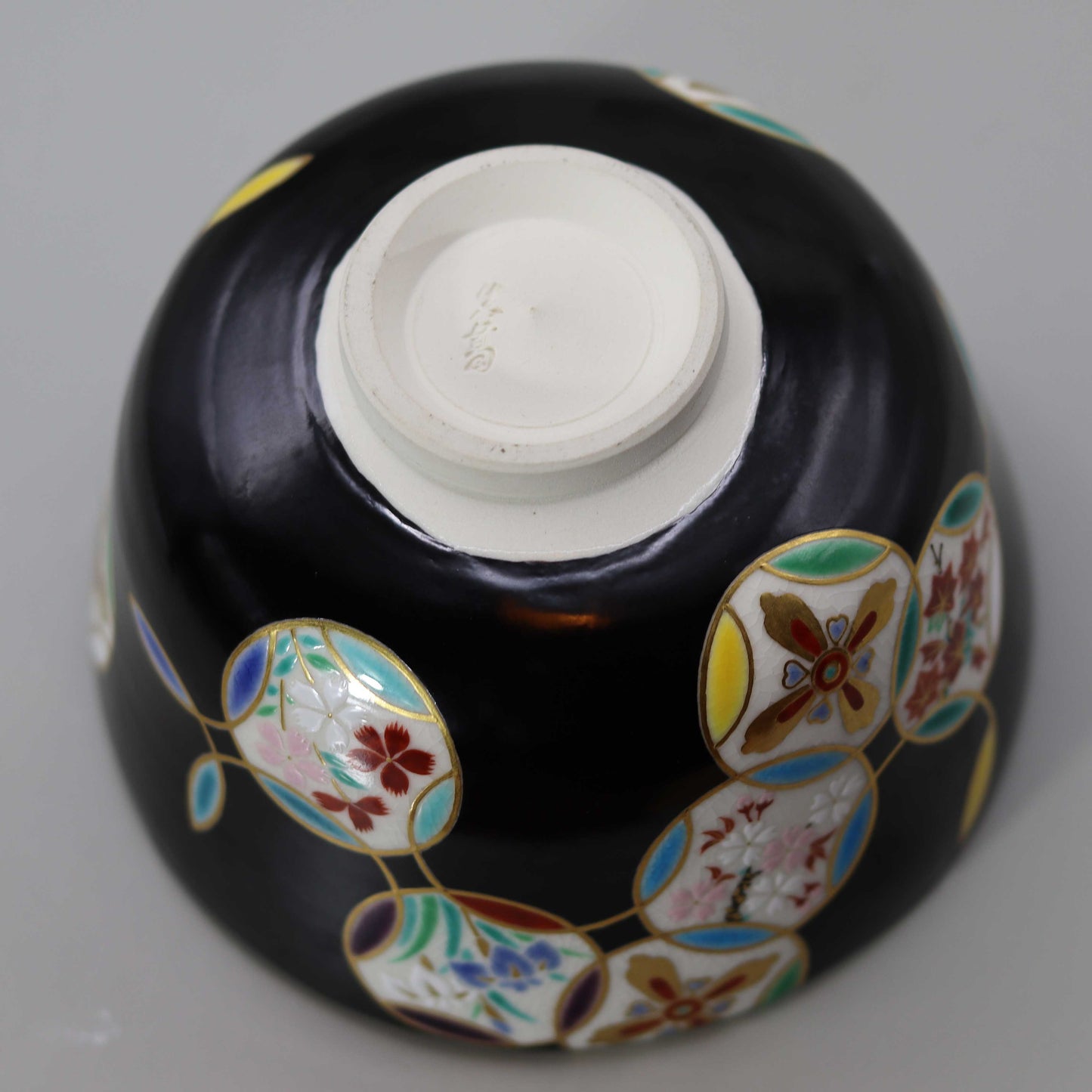
Multi-Column
-
[I will send it to you quickly and carefully]
We carefully package each product in a way that suits it best.
Also, delivery times vary depending on the piece (vessel, etc.).
Items that already come with a box will be shipped within 1-3 days of the order date.
For items that require a box to be made after your order, it will take approximately 30 days for production to be completed and then shipped.
In either case, once we have confirmed your order, we will contact you by email to inform you of the delivery date.
-
[Requests when purchasing pottery]
Even products that look the same may differ slightly in color, shape, size, etc.
The way the glaze is used, the power of the kiln, the firing method, the season, and the humidity also affect the appearance of the pottery.
Please understand the individuality of each piece of pottery and enjoy the unique warmth of handmade.







